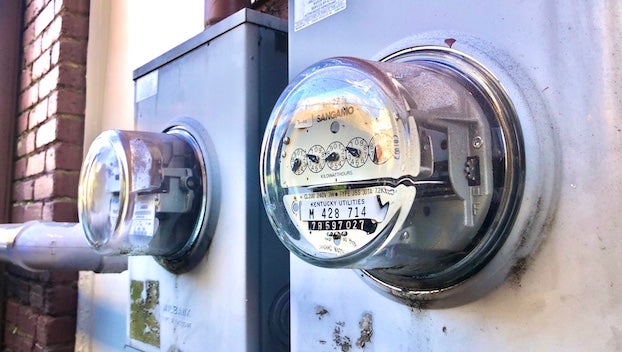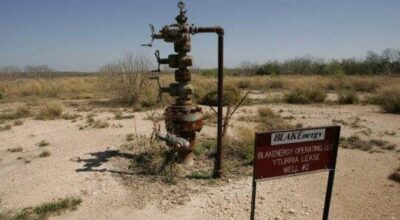PSC issues LG&E/KU net metering order
Published 3:02 pm Friday, September 24, 2021

- (Photo by Emily Perkins)
|
Getting your Trinity Audio player ready...
|
FRANKFORT—Today, the Kentucky Public Service Commission issued an order that, among other items, establishes a rate at which customers would be compensated for energy transferred back to Louisville Gas and Electric and Kentucky Utilities (LG&E/KU) through net metering. This rate would be for eligible facilities that will be placed into service on or after September 25, 2021.
On June 30, 2021, the Commission entered an Order on LG&E/KU’s rate adjustments and other matters. The Commission, however, deferred decisions on the companies’ proposed Net Metering and Qualifying Facility (QF) tariff changes pending additional review. LG&E/KU proposed a revised net metering tariff (NMS 2) for new customer-generators, as authorized by the General Assembly’s 2019 amendments to Kentucky’s net metering statutes. This impacts customers who may be considering the installation of solar panels at their property.
The Commission’s June 30 Order directed LG&E/KU and intervening parties to file additional evidence for the net metering export compensation rate using the avoided cost components established in a previous proceeding, that of Kentucky Power (Case No. 2020-00174, issued May 14, 2021). Those components are avoided energy, ancillary services, generation capacity, transmission capacity, distribution capacity, carbon and environmental compliance costs, and jobs benefits.
While the companies provided estimates for avoided ancillary services, generation capacity, transmission capacity, and distribution capacity costs, they proposed a recommended total avoided cost of 2.319 cents per kilowatt hour (kWh), based only on their estimated avoided energy costs. Today’s Order establishes an NMS 2 export rate of 6.924 cents/kWh for LG&E and an NMS 2 export rate of 7.366 cents/kWh for KU. These rates are based on avoided costs in each of the categories listed above.
The Commission notes LG&E/KU’s avoided cost calculations contain inconsistencies and in some instances are based on false or unreasonable assumptions. Their assumptions and process for estimating costs also failed to adhere to the guiding principles the Commission outlined in the Kentucky Power net metering Order. The Commission especially finds unreasonable the companies’ contention that net metering customers are unlikely to lead to avoided generation, transmission, and distribution capacity costs or avoided carbon costs.
The Commission used a modified Value of Solar methodology developed in Minnesota in establishing avoided transmission capacity and distribution capacity costs. This methodology is an acknowledgment of the determination that net metering customers do result in deferred system costs, with the Commission noting for, example, that each net metering customer provides a small, incremental reduction to overall load for which the customer should be appropriately compensated.
In addition to establishing NMS 2 export rates and making modifications to several other tariffs (qualifying facilities, Green Tariff, and Solar Share Program Rider), today’s Order reiterates the guiding principles LG&E/KU and other utilities should follow in determining compensation for eligible customer-generators in future filings. The Commission states that utilities must learn to cost-effectively integrate distributed energy resources (DERs) into their planning, procurement, and operational processes if they are to ensure ratepayers do not pay higher costs. DERs are small-scale units of power generation that operate locally and connect to the larger power grid, ordinarily at the distribution level. Further, utilities should not, as LG&E/KU did in this case, rely on DER integration issues from jurisdictions that have very high levels of DERs in claiming distributed generation causes more costs than benefits.
The Commission also finds that additional information regarding advanced distribution management solutions (ADMS) and distributed energy resource management systems (DERMS) is necessary. This is because of LG&E/KU’s plans to spend significant amounts on such systems to address potential issues with a dynamic distribution system, even though the volume of DERS on LG&E/KU’s systems is minimal and more affordable alternatives to ADMS and DERMS exist.
Today’s Order also directs LG&E/KU to submit a filing that details how the companies will increase the transparency of their production cost model (used in determining avoided energy costs). The companies are also required to submit a filing that explains how non-fuel operations and maintenance costs are determined to be variable and fixed costs. These filings are due within ninety days. Within thirty days, the companies are also required to file with the Commission a recommended notice to customers regarding how their joint accounts will be treated under the NMS tariffs.
The Commission conducted an evidentiary hearing on Aug. 17 and 18, 2021.
Intervenors in the two cases are: The Attorney General of the Commonwealth of Kentucky; Kentucky Industrial Utility Customers, Inc.; Kroger Company; Walmart, Inc.; Kentucky Solar Industries Association, Inc.; Sierra Club; United States Department of Defense and all other Federal Executive Agencies; Mountain Association; Kentuckians for the Commonwealth; Kentucky Solar Energy Society; and Metro Louisville/Jefferson County Government (LG&E)/Lexington-Fayette Urban County Government (KU).
Today’s Order and other records in the cases are available at psc.ky.gov. The Case numbers are 2020-00349 (KU) and 2020-00350 (LG&E). The cases remain open pending final determination on matters for which LG&E/KU were granted rehearing in an Aug. 12, 2021, Order.
Commissioner Butler did not participate in this proceeding.
The PSC is an independent agency attached for administrative purposes to the Energy and Environment Cabinet. It regulates more than 1,100 gas, water, sewer, electric and telecommunication utilities operating in Kentucky.




